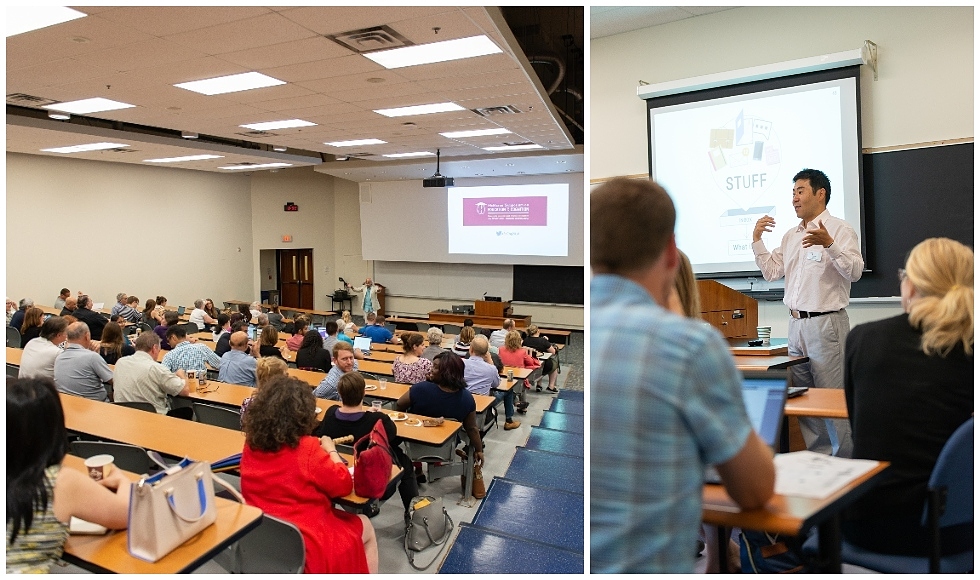Annual EdCog conference aims to bridge gap between the lab and the classroom

Are you a visual learner? Or a musical learner? Maybe you’re a kinesthetic learner, or one of the dozen or so other learning styles that have been identified over the years?
Matching teaching practice to individual learning styles remains an influential idea, one that many educators believe could be used to improve academic performance. Except that, according to Joe Kim, an associate professor in McMaster’s Department of Psychology, Neuroscience & Behaviour, there’s no evidence it actually works.
“It’s such an influential theory that teachers know about it, students know about it, but there’s no data to support it,” says Kim. “Think about what a waste of resources it is. Imagine we instead invest in evidence-based approaches – that would be a good use of resources.”
On July 18th and 19th, leading experts from across North America will be on campus to explore a number of these evidence-based approaches to teaching and learning at the The 7th annual McMaster Conference on Education & Cognition (EdCog).
The symposium – open to a range of educators at both the high school and post-secondary level – will bring together educators, cognitive scientists and policy makers to discuss how cognitive science can be applied to educational policy and instructional design to improve learning outcomes for students.
“There’s so much mis-information about teaching out there,” says Kim, the lead organizer of the conference. “I hope this informs the way educators approach pedagogical decisions for teaching and helps them understand that there is a lot of research in controlled labs and classroom intervention studies that demonstrate effective methods for engaging students and helping them retain information for the long term.”
The conference includes talks delivered by a world-class line-up of speakers, a discussion panel, as well as evidence-based workshops aimed at providing educators with practical strategies and tools, intended to help bridge the gap between the lab and the classroom.
The programming includes a public lecture by renowned researcher David Miele, the principal investigator of the Motivation, Metacognition, and Learning (MML) Laboratory at Boston College, who will talk about how students’ beliefs about their ability to learn influence their engagement in the classroom and, for parents and teachers, how understanding their own beliefs about what motivates students to learn could inform both parenting and teaching practice.
Additional speakers include:
- Shana Carpenter, Iowa State University, on Using Prequestions to Enhance Student Learning
- Ido Davidesco, New York University Steinhardt, on Brain-to-Brain Synchrony in the Classroom
- Noah Forrin, McMaster University, on Investigating the Spread of Attention/Inattention in the Classroom
Workshops include:
- Ideas Congress (ICON): A Transdisciplinary Learning Environment for Experiential Learning, led by Shoshana Jacobs, University of Guelph
- Focusing on what really matters: A reset for workplace productivity, led by Joe Kim
- Helping Students to See the “Transferable” Part of Transferable Skills, led by Tanya Martini, Brock University
See full list of speakers and workshops
Learn more or register for the EdCog conference and public lecture by David Miele
Follow EdCog on Twitter #EdCOg2019 for updates.


